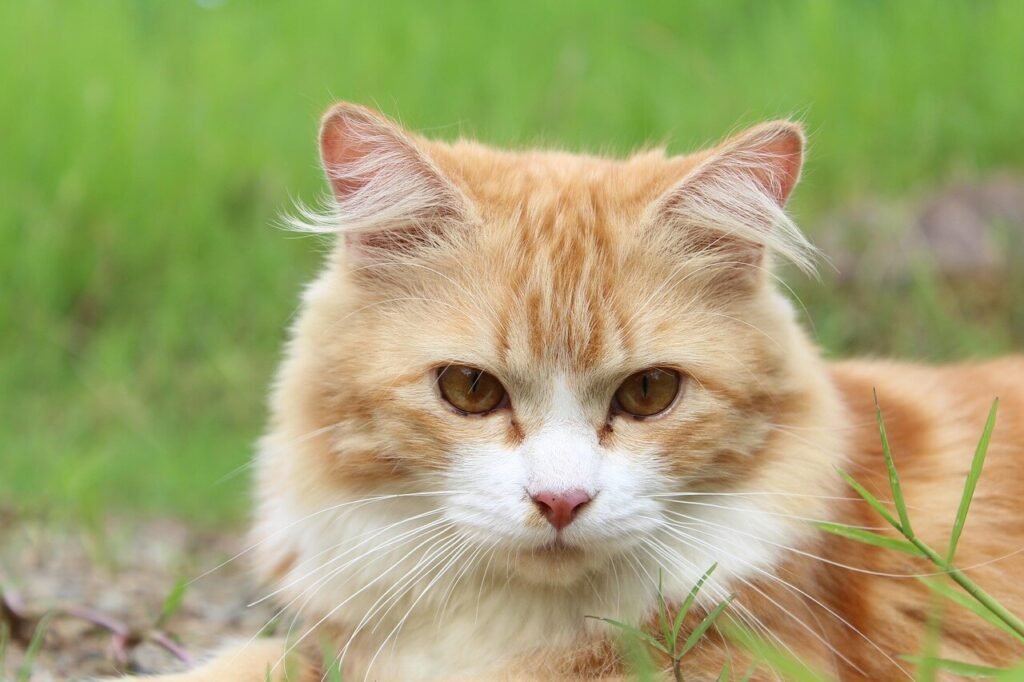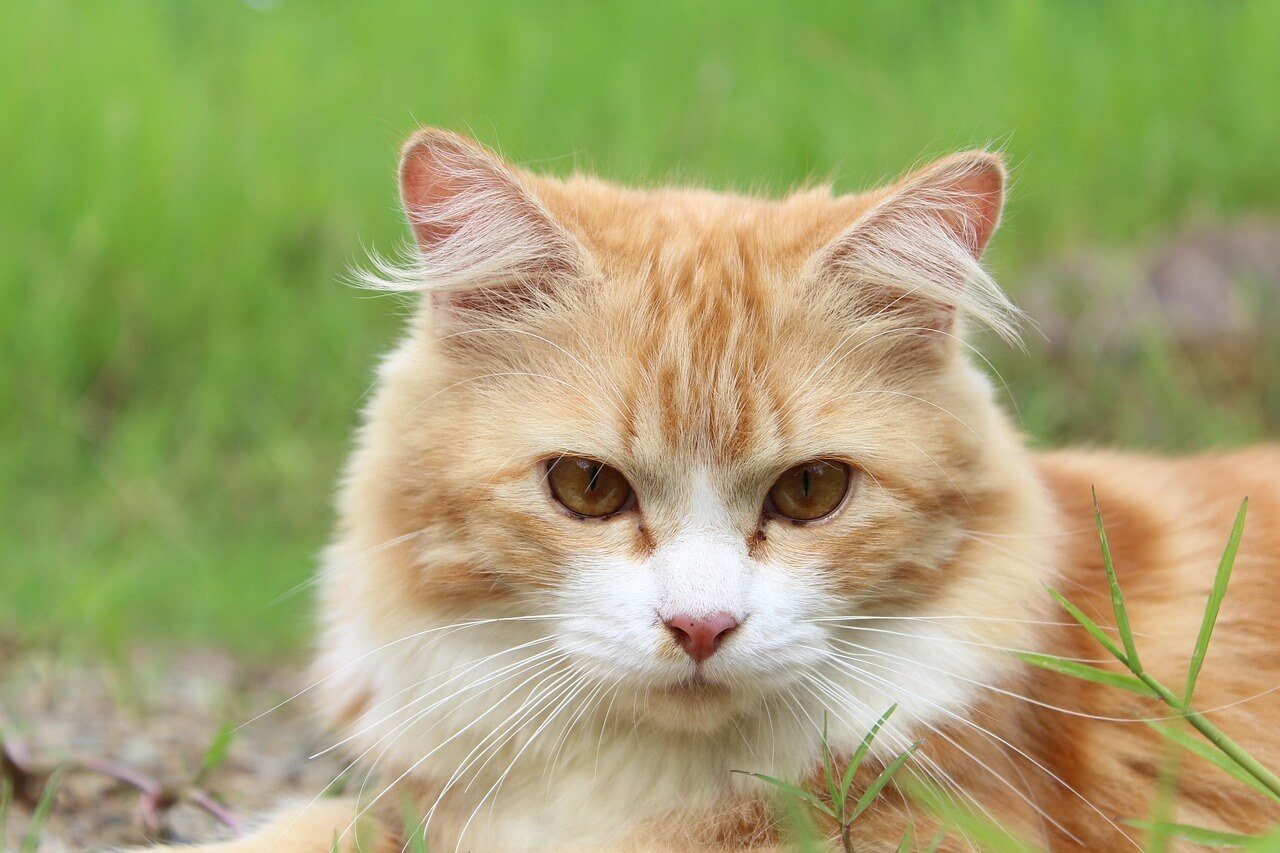Why Does My Cat Lick Me When I Pet Her?
If you’ve ever wondered why your cat licks you during or after petting, you’re not alone. This seemingly simple behavior is rich with meaning and reflects the deep bond between you and your feline companion. Cats communicate through actions as much as they do through meows or purrs, and licking is one of their most expressive gestures. Whether it’s a sign of affection, trust, or something else entirely, understanding why your cat engages in this behavior can help you better connect with her. In this blog post, we’ll explore the reasons behind this adorable yet curious habit and what it says about your relationship with your furry friend.
Reasons Why Your Cat Licks You During Petting
Cats lick for a variety of reasons, and when they do so while being petted, it often carries special significance. Here are some common explanations for this behavior.
Affection and Bonding:
Licking is a way for cats to show love and strengthen their emotional connection with you. It’s similar to how they groom other cats in their social group.Marking You as Their Own:
Cats have scent glands in their mouths, and licking helps them leave their scent on you, marking you as part of their territory.Reciprocation of Care:
When you pet your cat, she may interpret it as grooming and respond by licking you back—a gesture of mutual care.Comfort and Relaxation:
The act of licking can be soothing for cats, much like kneading or purring. If your cat licks you while being petted, she may feel particularly relaxed and content.Seeking Attention:
Sometimes, licking is a subtle way for your cat to ask for more interaction or express that they enjoy the attention you’re giving them.
Understanding these motivations can deepen your appreciation for your cat’s unique way of communicating her feelings.

Signs That Your Cat Enjoys Being Petted
While licking is a clear sign of enjoyment, there are other behaviors that indicate your cat loves being petted. Recognizing these signs ensures you’re meeting her needs and strengthening your bond.
Purring Loudly:
Purring is one of the most obvious indicators that your cat is happy and comfortable during petting sessions.Leaning Into Your Hand:
If your cat presses her body closer to your hand or headbutts you gently, it means she’s seeking more contact.Slow Blinking Eyes:
A slow blink from your cat is a sign of trust and affection, often accompanied by relaxed body language.Kneading with Paws:
Kneading, or “making biscuits,” is a behavior rooted in kittenhood that shows comfort and contentment.Tail Position and Movement:
A tail held high or gently swishing side to side indicates happiness, while a puffed-up tail signals discomfort.
By observing these cues, you can ensure your petting style aligns with your cat’s preferences and enhances her overall well-being.
Check this guide 👉 Why Do Cats Lick Their Lips? Best 7 Expert Care Tips!
Check this guide 👉How to Get Cat Pee Smell Out of Carpet: Best 7 Expert Tips!
Check this guide 👉Cat Ear Mites vs Wax: Best 7 Expert Tips!
Positive Behaviors During Petting | Negative Behaviors to Watch For |
|---|---|
Purring loudly | Growling or hissing |
Leaning into your touch | Flattening ears against the head |
Slow blinking | Swatting or biting |
Kneading with paws | Tail flicking rapidly |
Rubbing against your hand | Attempting to move away |
When Licking Becomes Excessive: What to Do
While occasional licking is normal, excessive licking during petting could indicate an underlying issue. Addressing this behavior early ensures your cat stays healthy and happy.
Check for Skin Irritation:
If your cat licks excessively, she may be experiencing itchiness or discomfort due to allergies, fleas, or dry skin.Monitor Stress Levels:
Anxiety or stress can lead to overgrooming. Look for changes in her environment that might be causing distress.Limit Overstimulation:
Some cats become overstimulated during long petting sessions, which can trigger compulsive licking. Shorten the duration of interactions if needed.Consult Your Veterinarian:
Persistent licking should be evaluated by a vet to rule out medical conditions like dermatitis or hormonal imbalances.Provide Distractions:
Redirect her focus with toys or treats if you notice obsessive licking patterns developing.
By addressing excessive licking promptly, you can prevent potential health issues and maintain a balanced relationship with your cat.
How to Respond When Your Cat Licks You
Knowing how to react when your cat licks you can enhance your bond and reinforce positive behaviors. Here are some tips for responding appropriately.
Stay Calm and Relaxed:
Avoid pulling away abruptly, as sudden movements might startle your cat. Instead, remain calm to encourage continued trust.Offer Gentle Praise:
Speaking softly or offering verbal praise reinforces that her behavior is appreciated and welcomed.Give Her Space if Needed:
If your cat seems uncomfortable or overly enthusiastic, give her a break to avoid overwhelming her.Reward with Treats:
Offering a small treat after licking can create a positive association and reinforce the behavior.Avoid Negative Reactions:
Never scold or punish your cat for licking, as this can damage your relationship and confuse her.
Responding thoughtfully ensures your cat feels secure and valued, strengthening your connection over time.
Different Types of Licking Behaviors
Not all licking behaviors are the same—they vary based on context and intent. Understanding these differences helps you decode what your cat is trying to tell you.
Gentle Licking:
Soft, rhythmic licks often signify affection and mimic the grooming behavior cats use with their littermates.Rough or Intense Licking:
This may indicate excitement, overstimulation, or even anxiety. Monitor your cat’s body language for additional clues.Targeted Licking (Ears, Hands):
Cats may focus on areas like hands or ears because they associate them with scents or warmth reminiscent of their mother.Playful Licking:
Quick, light licks combined with purring or pawing suggest playfulness rather than genuine grooming.Incessant Self-Licking Near You:
If your cat grooms herself excessively while near you, it could mean she’s seeking attention or feeling nervous.
Recognizing these nuances allows you to better interpret your cat’s intentions and respond accordingly.
How to Encourage Positive Interactions
Building a harmonious relationship with your cat involves fostering positive interactions beyond just petting. These strategies help create a supportive environment for both of you.
Establish Trust Through Routine:
Consistent feeding, playtime, and grooming schedules build predictability and trust.Use Interactive Toys:
Laser pointers, feather wands, and puzzle feeders engage your cat mentally and physically, reducing stress-related behaviors.Respect Boundaries:
Pay attention to your cat’s signals and step back if she seems uninterested or agitated.Practice Positive Reinforcement:
Reward desired behaviors with treats, praise, or gentle strokes to encourage repetition.Create a Safe Space:
Provide cozy hiding spots or elevated perches where your cat can retreat when overwhelmed.
By prioritizing your cat’s comfort and happiness, you lay the foundation for a lifelong partnership filled with mutual respect.
Common Misconceptions About Cat Licking
There are several myths surrounding why cats lick humans, and debunking them helps foster a clearer understanding of this behavior.
“Cats Only Lick People They Love”:
While affection plays a role, licking can also stem from curiosity, territorial marking, or habit.“Licking Always Means Happiness”:
Although licking often reflects contentment, it can sometimes signal stress, boredom, or discomfort.“Cats Don’t Like Being Touched”:
Many cats enjoy physical contact, but preferences vary widely depending on individual personalities.“Excessive Licking Is Just a Quirk”:
Persistent licking warrants investigation, as it could point to underlying medical or behavioral issues.“You Should Ignore Unwanted Licking”:
Ignoring the behavior entirely might miss important cues—redirecting attention is often a better approach.
Dispelling these misconceptions ensures you approach your cat’s licking behavior with empathy and insight.
Frequently Asked Questions About Cat Licking Behavior
Why does my cat lick me and then bite me?
This could indicate overstimulation. Cats often switch between licking and biting when they’ve had enough attention.
Does licking mean my cat loves me?
Yes, licking is often a sign of affection and trust, though it can also serve other purposes.
Should I stop my cat from licking me?
Only if it makes you uncomfortable. Otherwise, it’s a natural behavior that strengthens your bond.
Can licking be a sign of illness?
In some cases, excessive licking might indicate stress, pain, or nutritional deficiencies. Consult a vet if concerned.
Do all cats lick their owners?
Not necessarily. Each cat has a unique personality, and not all express affection through licking.
Celebrating the Unique Bond Between You and Your Cat
Your cat’s licking behavior is a testament to the special bond you share—a mix of trust, affection, and communication. By recognizing the reasons behind this endearing habit and responding thoughtfully, you can nurture a deeper connection with your feline companion. Whether she’s showing love, marking you as family, or simply enjoying your company, every lick is a reminder of the joy and companionship cats bring into our lives. So the next time your cat leans in for a lick, take a moment to appreciate the silent, yet profound, conversation happening between you two.
Cat Anaphylactic Shock Treatment Costs: Best 7 Expert Tips! – Learn about costs, treatments, and financial aid options to save your cat’s life.
Exocrine Pancreatic Insufficiency in Cats: Best 7 Tips! – Learn to spot symptoms, manage EPI effectively, and improve your cat’s quality of life with expert advice.
Cost of Dog Anaphylactic Shock Treatment: Best 7 Tips! – Learn about emergency costs, financial planning, and ways to manage expenses for your dog’s care.
Exocrine Pancreatic Insufficiency in Dogs: Best 7 Tips! – Learn to spot symptoms, manage EPI effectively, and improve your dog’s quality of life with expert guidance.





